Steve Clarke’s understated nature means he would never shout about having plenty in common with those who now regard him as a saviour. Ask the 57-year-old about international days of old, though, and he offers personal experience that adds charm to an already eagerly anticipated scene.
The visit of the Czech Republic to Hampden Park on Monday will end a Scottish wait for major championship football which has stretched to 23 years and included 10 botched qualifying campaigns. As the man who gave Scots a national team they can believe in again, Clarke is due football’s equivalent of rose petals at his feet.
Scotland’s position is actually familiar, including to their manager. In 1974 Scotland went to the World Cup in West Germany having not featured in the same domain for 16 years. “Nineteen seventy-four?” asks Clarke. “Willie Ormond’s team. Joe Jordan scored the goal to qualify us against Czechoslovakia.
“I was a kid at Hampden that night with my dad and my brother. I don’t remember much but that’s because I couldn’t see much. I was in the middle of that north terrace somewhere and couldn’t see the game. I was just a little fella, squeezed in. But I know I was there and I remember the goal.”
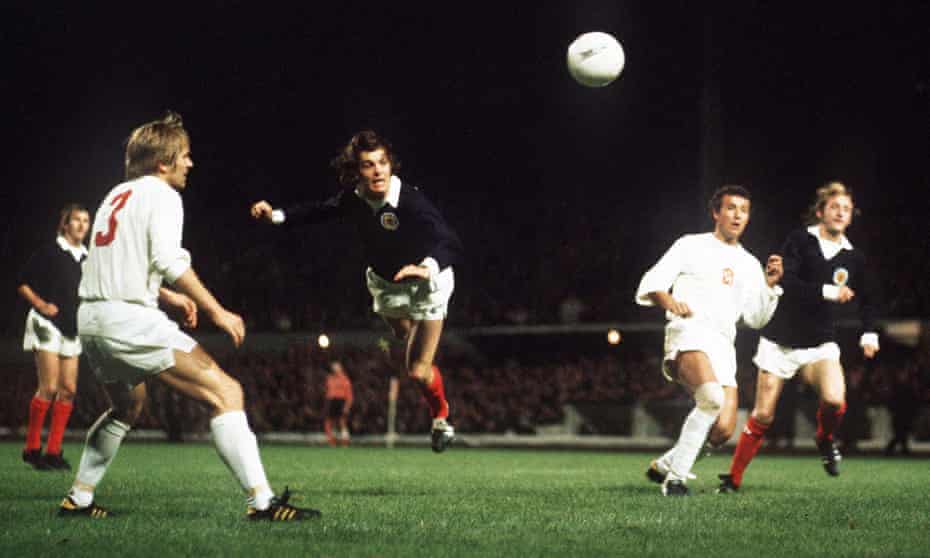
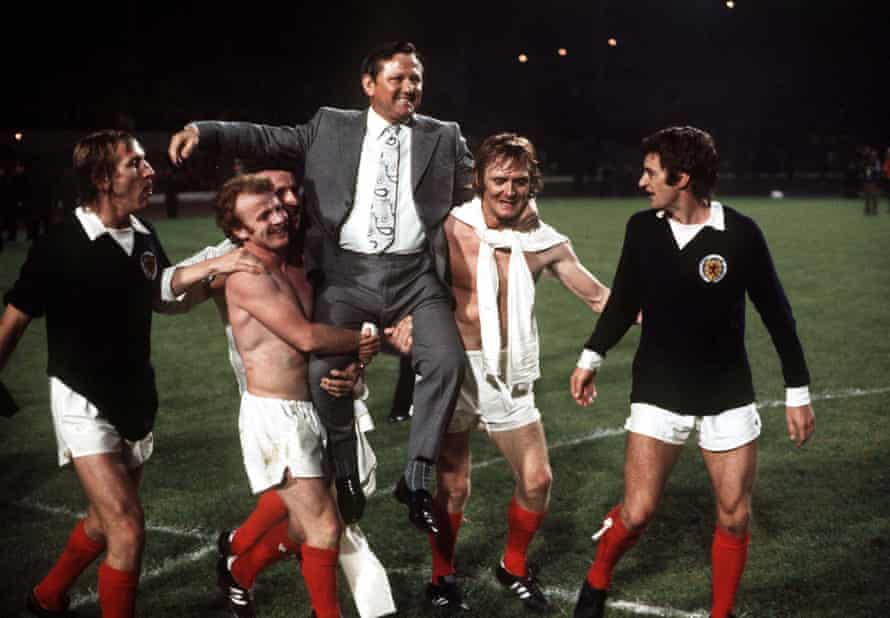
No wonder Clarke’s vision was obscured. The official attendance on 26 September 1973 was 95,786. “At 10 years of age, that’s the point where football is starting to grab you,” Clarke says. “We were a football family. I would have gone to that game because my dad told me I was going. And that’s what everybody did back then: you went to watch Scotland. Quite a few times I was on that north terrace, not seeing very much.”
Clarke recalls less of the World Cup itself, other than Scotland “didn’t beat Zaire by enough goals”, which continued a run that remains to this day. Scotland have never progressed beyond a tournament group phase. Not that Clarke was ever on hand to see that. “If I wasn’t picked, I didn’t go,” he says with typical candour.
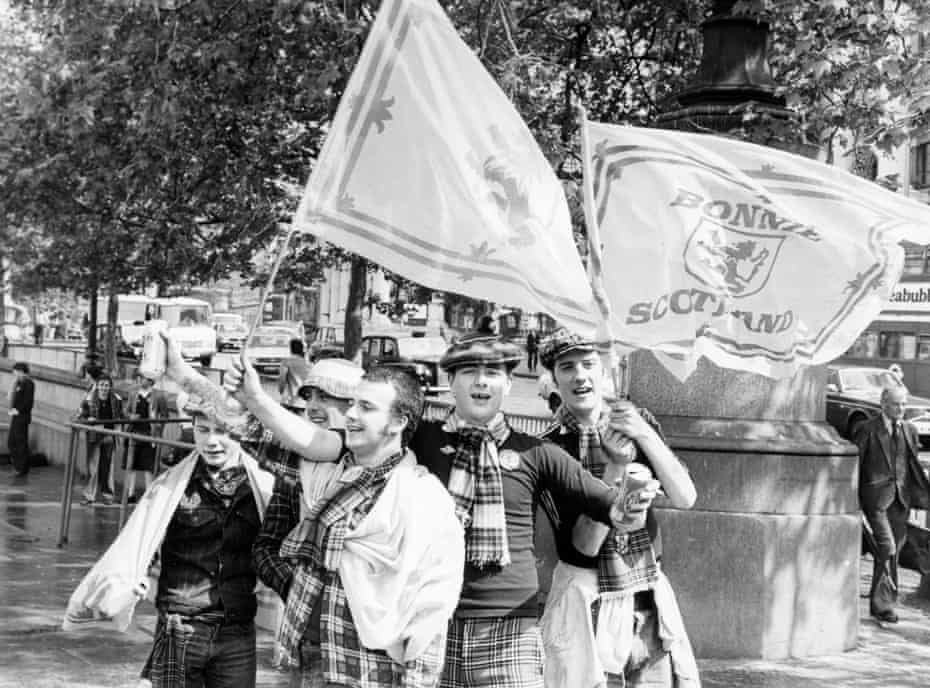
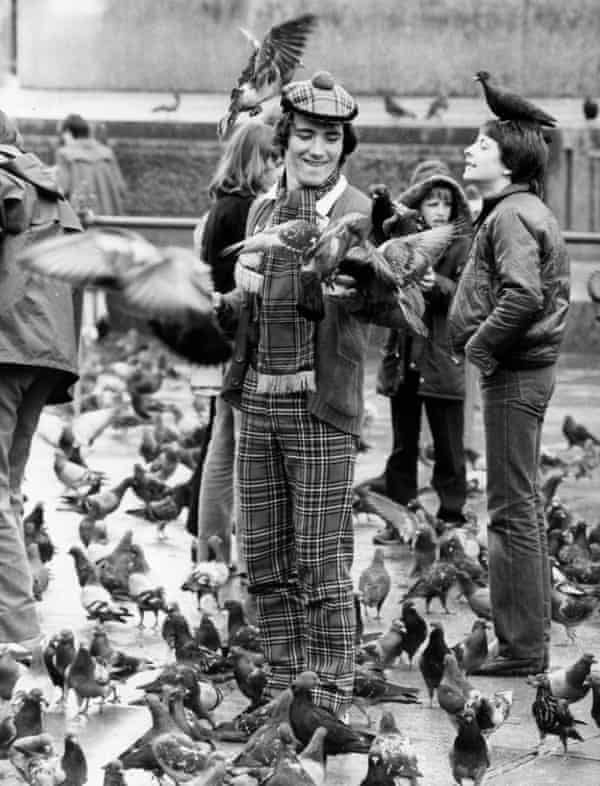
By 1981, the 18-year-old Clarke found it considerably easier to watch from terraces. On account of earlier misbehaviour, Scotland fans were officially locked out of Wembley for a home international the visitors won 1-0 courtesy of a John Robertson penalty. Thousands still travelled to London, including Clarke and his younger brother Michael.
“We never saw any trouble even though there was a big Scottish contingent there,” Clarke recalls. “You just went in jeans and a T-shirt. My sister lived in London at the time, her husband was in the Met police. Although we were banned, we managed to get tickets through him. I remember that game but I remember losing my little brother afterwards more.”
This requires detail. “There was no public transport to get in and out of Wembley so everybody was walking for miles and miles. My sister was in north London so we tried to walk back there. Somebody stopped and offered a couple of us a lift; my little brother and someone else from the party jumped into the car. According to my sister he was never going to be seen again but he turned up eventually.”
Clarke smiles when the endearing nature of this tale is pointed out. “Aye. It wouldn’t have been such a great story if my wee brother didn’t turn up.”
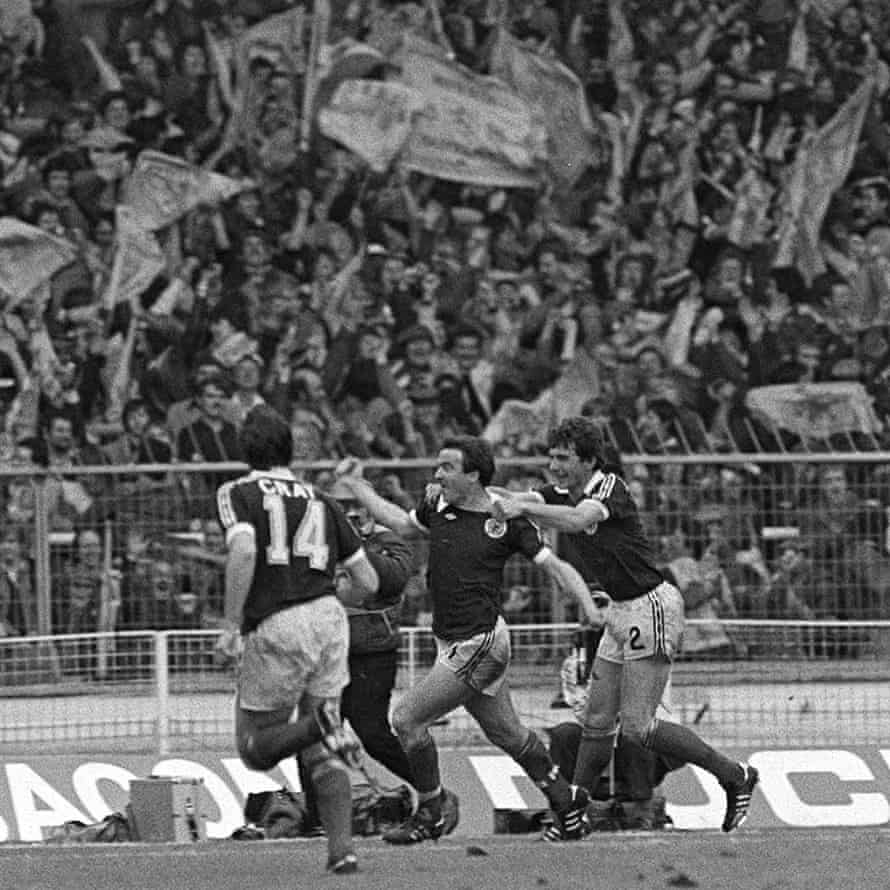
A week on Friday, Clarke’s Wembley return will mark the second of three Group D matches – Croatia complete the section – for his team. Jingoism and chest-beating form the backdrop to meetings between England and Scotland but Clarke will find it easy to be safely detached. He has, after all, spent the vast majority of his professional life in England. He still lives there.
“My two boys are English. My grandchildren are English. I understand the rivalry, I enjoy the rivalry, don’t get me wrong. It’s nice to be part of a historic fixture.
“ But the noise? That’s easily blocked out. There is no need for anybody involved in the game to be part of that; we just concentrate on being as professional as we can be. Sir Alex Ferguson says a lot of sensible things and he mentioned it would be a mistake to concentrate too much on that middle game. He is right. We have to focus equally on all three games. It doesn’t matter where the points come from.
“I was taking some rubbish to the tip the other day and the guy on the site making sure we were all following the rules was a Scotsman. The first thing he says to me is: ‘Thanks very much.’ And that’s a long time after we have actually qualified. It’s nice that we have made so many people happy … hopefully we can make them happier still.”
Clarke’s balancing act is tricky. He has to square general delight at being back in the forefront of international football with a legitimate belief his team can make further history. The former Chelsea defender is not of a mind to let his players rest on laurels or, a Scottish staple, believe they must punch hugely above their weight.
“If you look at the group then two teams were in the last four of the World Cup,” says Clarke of England and Croatia. “Two of the best four teams in the world, where neither squad has changed particularly much. The Czechs in my mind are an improving team but I put ourselves in the same category. We are also a group that have come together, grown together and are improving together.
“I don’t know about the underdog mentality – we have to think we can achieve something in this section. An achievement would be getting out of the group. Do I think we can do that? Yes, given a fair crack of the whip and the breaks you need.”
Clarke swats aside the widely held notion that England’s players will feel more heat. “I don’t think it’s any more intense than the pressure that’s put on the Scottish team. Expectation might be different but the pressure is the same. England’s realistic expectation is to be in the last four of major competitions. When you get that far, you think you can win it.”
The celebrations that met the sealing of Scotland’s Euros berth were epic. They arrived 18 months after he accepted what looked a poisoned chalice. Clarke inherited noticeably downbeat personnel. “That was something that I consciously worked on,” he says. “I wanted to bring positivity within the group, encouraging the players to speak that way via the media, which is your conduit to the fans. But that was difficult during the first few games because we were thumped by Russia and Belgium.” By the time Scotland headed to Serbia for the play-off final last November, Clarke sensed “most of the country was on side but I don’t think too many people gave us a great chance of qualifying”.
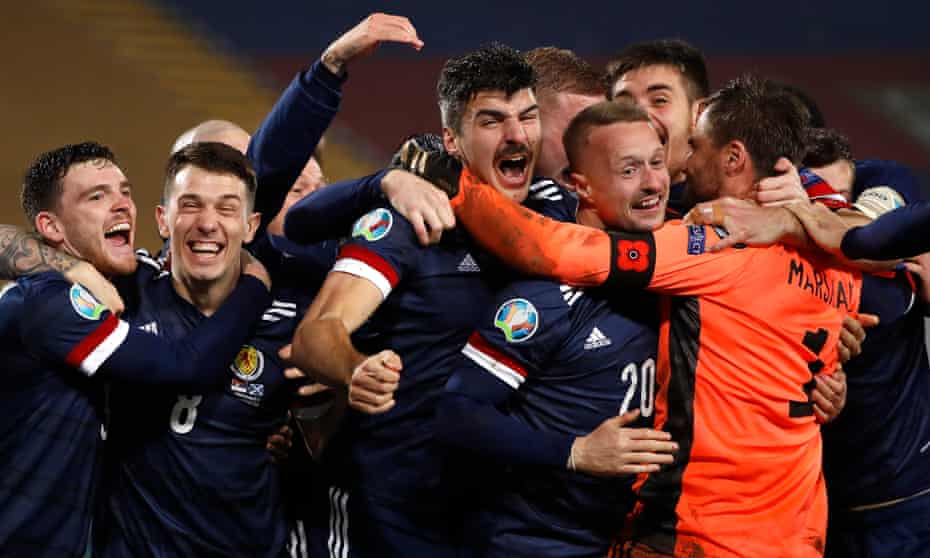
Qualify they did, amid penalty shootout drama. “That game was the first of three in a week,” Clarke says, referring to Nations League games in Slovakia and Israel. “I really felt we would get good results in the next two and we didn’t manage to do that so I actually came out of the week feeling a little bit deflated. You get the high, the euphoria, and although I felt the performances in the next two games were good I actually came home kind of flat. As time goes on, you realise what you have achieved and the players should be proud of this. But we also have to be conscious that it can’t be another 20-odd years before we qualify again.”
Clarke’s managerial versatility – he led West Brom to their highest Premier League finish, eighth, and Reading to an FA Cup semi-final, and revitalised Kilmarnock – has been demonstrated in this post. If there is unease about the sporadic nature of international management, Clarke masks it well. “You don’t need five, six, seven new guys coming in every time you have a camp because you don’t get professional relationships on the pitch or personal relationships off the pitch,” he says.
“I have tried to be consistent. We celebrated well when we qualified and I think taking more or less the same group into the championships means they have that bond to do well together. I think that’s really important.” Time will tell how far that spirit can carry the Scots. Historical context will not be lost on their manager.
from Football | The Guardian https://ift.tt/2TeQgr7
via IFTTT

No Comment